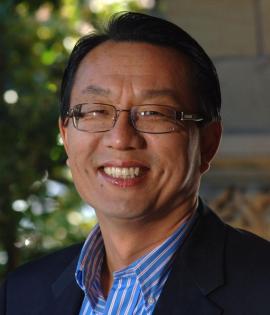|
|
Gi-Wook Shin (鐢宠捣鏃暀鎺�
Stanford University
Professor of sociology and a senior fellow of the Freeman Spogli Institute for International Studies at Stanford University; & The director of the Walter H. Shorenstein Asia-Pacific Research Center at Stanford University.
缇庡浗鏂潶绂忓ぇ瀛︼細浜氭床鐮旂┒涓績涓讳换銆佺ぞ浼氬鏁欐巿
| 涓婚锛�/span> | History Wars in Asia: What Can be Done? |
| 鏃堕棿锛�/span> | 17 October 2014, Friday, 15:00-17:00 |
| 鍦扮偣: | 娴欐睙澶у绱噾娓牎鍖�瑗�B-112锛堢ぞ浼氱瀛︾爺绌堕櫌浼氳瀹わ級 Zijingang Campus, Xi 3B-112 (Academy of Social Science) |
| 鎵垮姙锛�/span> | 娴欐睙澶у鍏叡绠$悊瀛﹂櫌鏀挎不瀛︾郴 娴欐睙澶у绀句細绉戝鐮旂┒闄�/span> |
| 涓昏锛�/span> | 鐢宠捣鏃�锛圙i-Wook Shin锛�/span> 缇庡浗鏂潶绂忓ぇ瀛︼細浜氭床鐮旂┒涓績涓讳换銆佺ぞ浼氬鏁欐巿 |
| 涓绘寔锛�/span> | 浣欓�杈撅紝娴欐睙澶у鍏叡绠$悊瀛﹂櫌鏀挎不瀛︾郴鏁欐巿銆佺ぞ浼氱瀛︾爺绌堕櫌闄㈤暱 |
Northeast Asia is a global center of economic dynamism, propelled by a phenomenal growth in social and cultural interactions among the nations in the region. Still, wounds from past wrongs, committed during times of colonialism and war, have not yet fully healed, and the question of history has become a highly contentious diplomatic issue throughout the region. Pessimists worry that colonial and wartime history problems will persist and that there is not much we can do about. On the other hand, optimists believe that history issues will inevitably fade away over time as the wartime generation passes away and the countries of the region become increasingly integrated economically and culturally. How should we approach current history tensions in Northeast Asia?
This lecture examines the complexity of history wars in Asia in comparison with European experiences. Disregarding or ignoring an unfortunate past means not only evasion from historical accountability but also a missed opportunity to learn from history. That Germany’s failure to learn from its defeat in World War I led to the rise of Nazism and another world war should provide a valuable lesson for all, especially Japan. After reviewing past efforts and modes of historical reconciliation, Professor Shin will discuss some concrete ways of moving forward that involve not only Asian nations but also the international community.
His lecture is based on a multi-year project called “Divided Memories: Toward Historical Reconciliation in Northeast Asia” that he has led at Stanford’s Asia-Pacific Research Center since 2007.
Gi-Wook Shin (鐢宠捣鏃�/strong>) is professor of sociology and a senior fellow of the Freeman Spogli Institute for International Studies at Stanford University (缇庡浗鏂潶绂忓ぇ瀛�. He has been the director of the Walter H. Shorenstein Asia-Pacific Research Center at Stanford University since 2005 and is also the founding director of its Korea Program. As a comparative and political sociologist, his research has concentrated on nationalism, development, and international relations. Shin is the author/editor of 16 books and over 50 articles. This year he has published two books Criminality, Collaboration, and Reconciliation and New Challenges for Maturing Democracies in Korea and Taiwan and many articles including one in Foreign Affairs on history wars in Asia. Shin also coauthored a policy report on North Korea entitled “Tailored Engagement.” He is currently writing a book on historical memories of the Asia-Pacific wars and his book, Global Talent: Foreign Skilled Labor as Social Capital will be published by Stanford University Press later this year. He writes monthly columns to Dong-A Daily (Korea) and Nikkei Asian Review (Japan).


